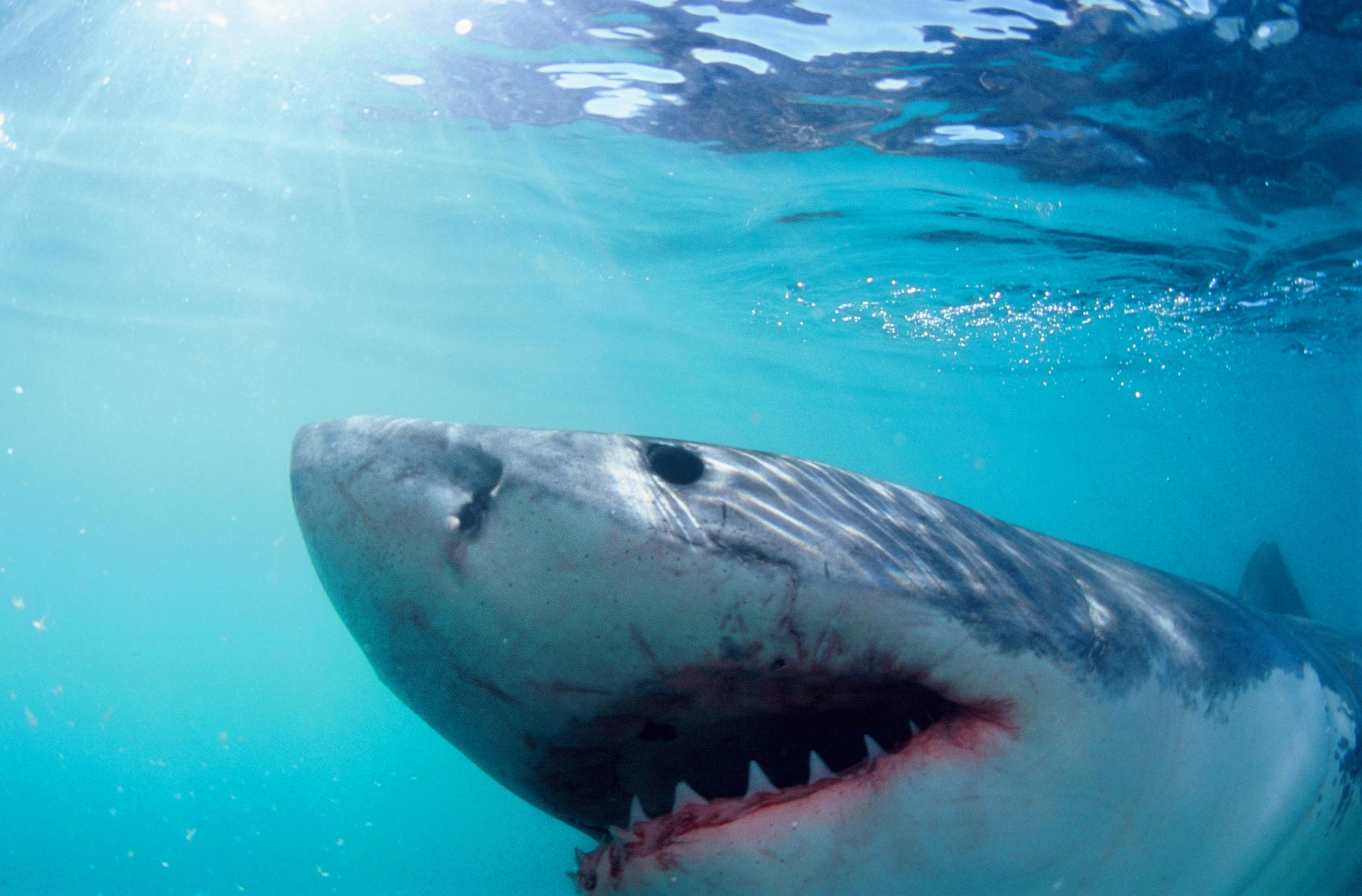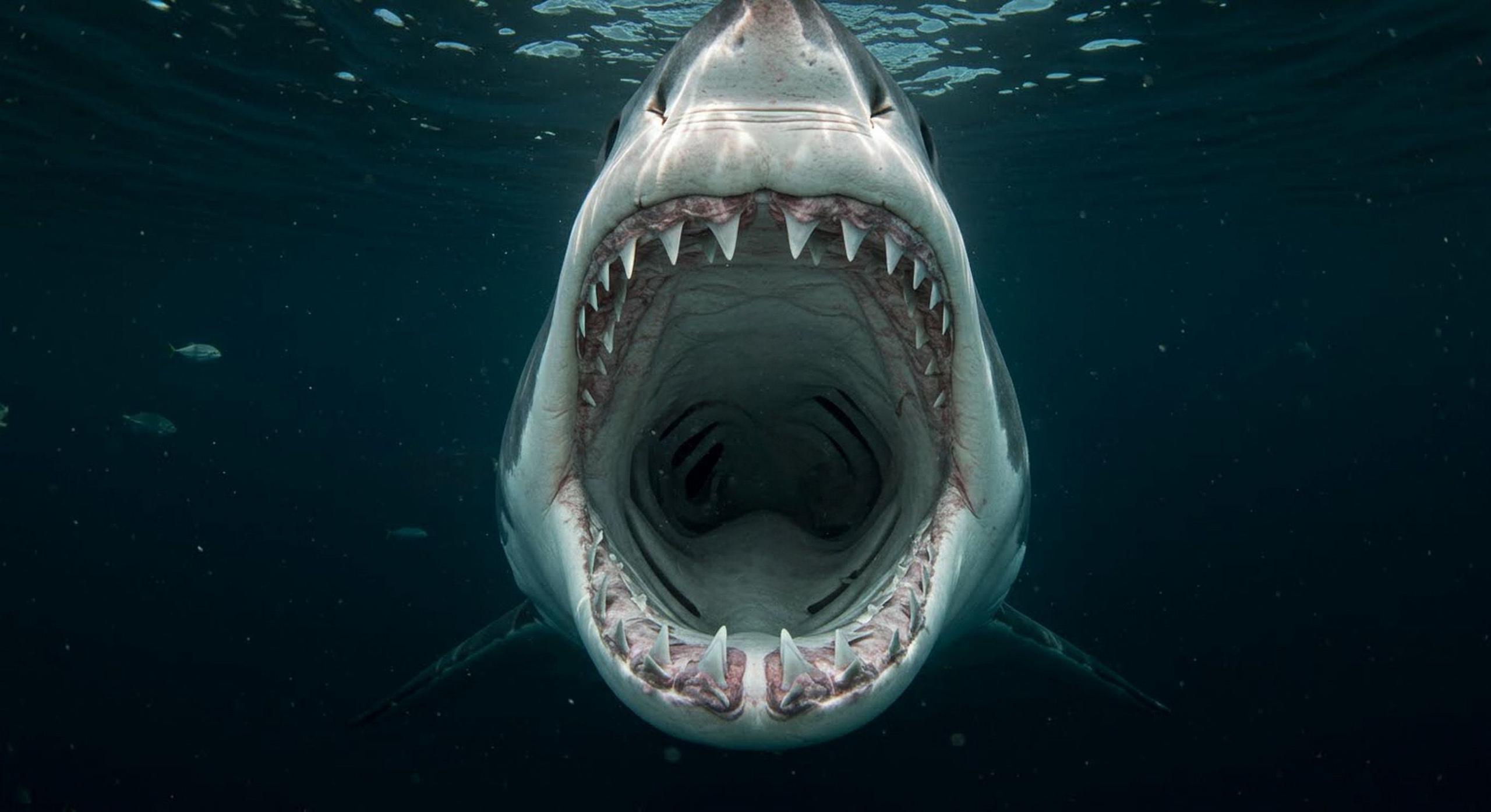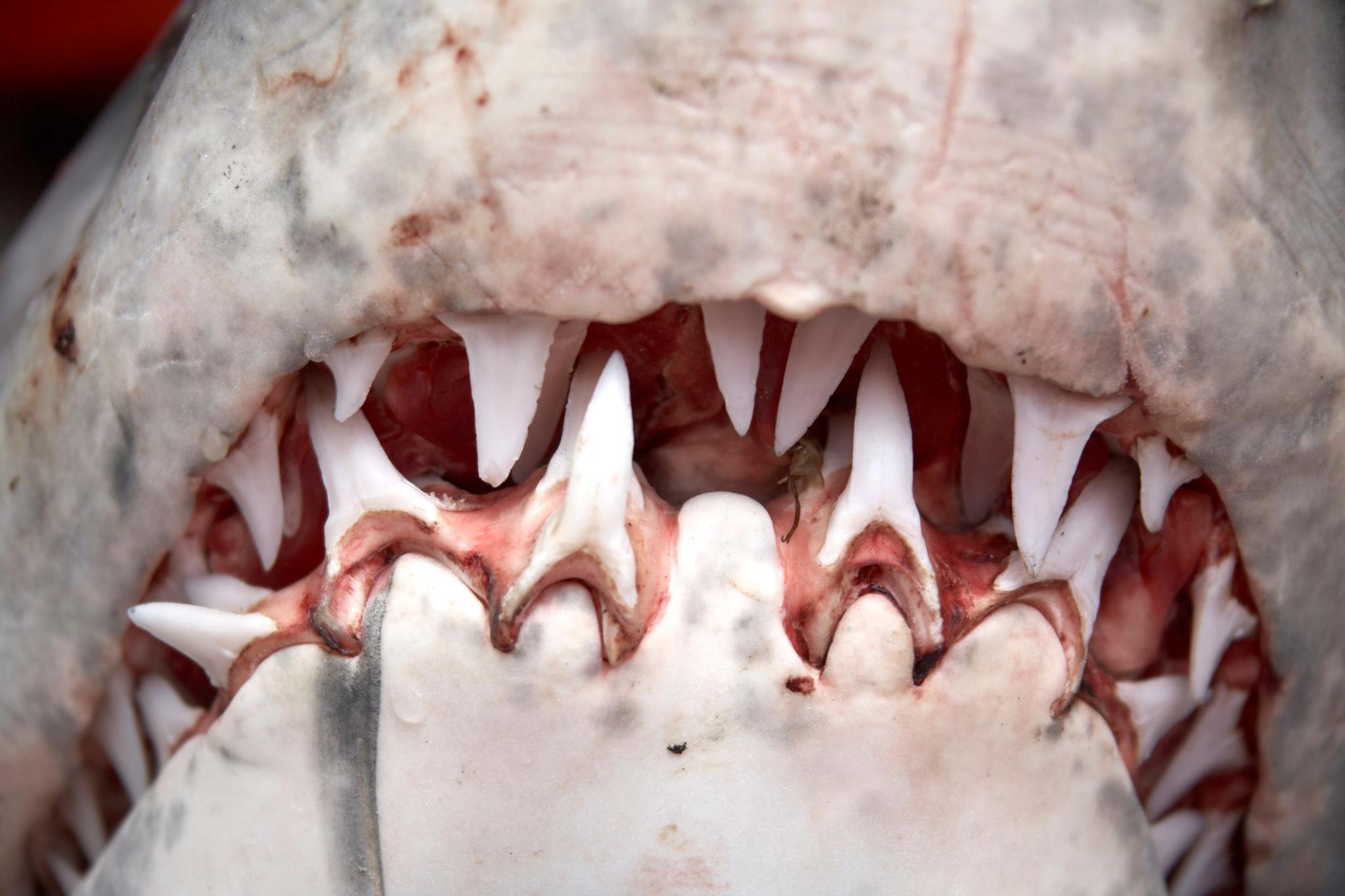Could sharks lose their teeth?

- Published
If you've ever heard of the famous film about a shark, called Jaws... It probably would've been less scary, if it had been called Gums instead.
It might sound funny, but new research suggests sharks could be losing their teeth because of changes to Earth's oceans, making it harder for the animals to feed themselves in the future.
Normally, sharks have several rows of teeth and when one falls out, another moves forward to take its place, some shark species can grow tens of thousands of teeth during a lifetime.
But if teeth start to wear down too quickly, sharks may not be able to replace them fast enough, making it harder for them to eat properly which, as the study explains, could affect shark numbers and marine ecosystems.
Rare bright orange shark discovered in Costa Rica
- Published26 August
Are large sharks hunting each other?
- Published3 September 2024
What's causing sharks to lose their teeth?

The main problem is something called ocean acidification. This happens due to the release of carbon dioxide into the air when humans burn fuels like coal, oil and gas.
The ocean absorbs a lot of this gas, which makes sea water more acidic.
To look at how acidic something is, scientist can measure it's pH. The lower the pH, the more acidic something is.
Scientists predict that by the year 2300, the ocean could shift from its current pH of about 8.1 to 7.3 - with the study warning that the drop may have "profound implications for marine organisms".

To test the effects, researchers collected 60 shark teeth that had naturally fallen out in a German aquarium.
They put half into seawater like today's ocean and half into more acidic water like scientists expect in the future.
After eight weeks, the teeth in the acidic tank had about twice as much damage, with "increased root corrosion - and altered serration," said Maximilian Baum, the study's lead researcher.
That means the bottoms of the teeth were being dissolving away, and the jagged, saw-like edges were becoming less sharp - not ideal if you're an ocean predator.
Baum warned that even the slightest increase in ocean acidity could affect more sensitive shark species, such as those that use fewer rows of teeth or have slower teeth replacement rates.

A shark's moth showing rows of teeth, some species can grow tens of thousands of teeth in a lifetime
Previous studies have shown that ocean acidification harms shells, corals and mussels, "and that was also the reason why we did this study, to show us the effects on larger predators," said Baum.
Sharks already face problems such as overfishing, which reduces the number of prey animals in the sea for sharks to hunt and damaged teeth could make life tougher.
But it's not all bad news. Baum thinks sharks may adapt by replacing their teeth more often or repairing them more strongly.
Lisa Whitenack, a shark tooth expert in the US, added that even corroded teeth might still work. "It will be interesting to see in future studies if the damage to teeth seen in studies like this one results in a functional effect on a tooth's ability to do its job."
